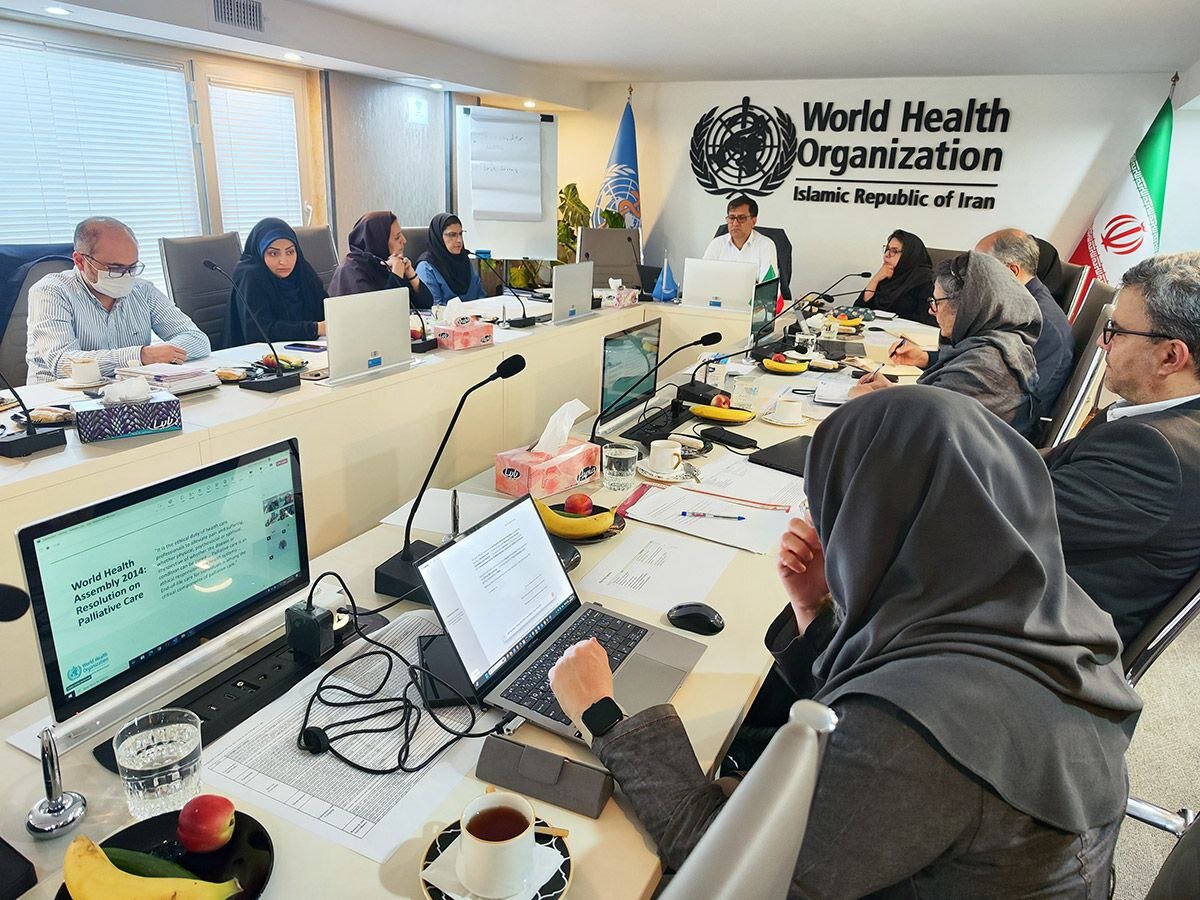WHO supports Iran in preparing paper on palliative care for RC72

TEHRAN – Supported by the World Health Organization (WHO), key representatives from the health ministry, medical faculties, non-governmental organizations, and palliative care providers have met to develop a technical paper on palliative care to be presented to the upcoming 72nd Session of the WHO Regional Committee (RC72) resolution.
The resolution, which supports WHO’s goals of improving access to care and achieving universal health coverage, marks a pivotal step towards integrating palliative care into health systems across the Region, WHO website announced in a press release on May 27.
Hosted by the WHO Country Office, the event was held on May 21. The WHO Regional Office for the Eastern Mediterranean (EMRO) and WHO country offices in the Region convened a diverse group of national stakeholders to enhance palliative care across Iran.
The collaborative meeting aimed to build a unified understanding of the current state of palliative care in Iran and chart a course forward aligned with the directives of the proposed palliative care resolution planned to be submitted.
Participants used the WHO regional framework for palliative care to evaluate strategic interventions and progress indicators across 6 critical areas – governance and policy, financing, service provision, medications, education and training and research and surveillance.
Their findings, compiled into a detailed, colour-coded matrix, underscored several notable achievements. These include the establishment of a national palliative care strategy, the integration of specialized palliative care units or teams in tertiary and general hospitals, and the inclusion of essential palliative care medicines on the Islamic Republic of Iran’s national list.
Postgraduate training and certification in palliative care are also available, and there is a growing focus on operational and implementation research in the field.
Stakeholders outlined strategic priorities for the next 2 years. These include fully implementing the national strategy, integrating palliative care into universal health coverage, revising legal frameworks to ensure safe, regulated access to care and medications, and setting national standards for training and accreditation.
While some challenges persist – particularly in areas demanding long-term investment or deeper policy reform – the meeting highlighted a collective resolve to move forward. This collaborative endeavour reaffirms the Islamic Republic of Iran’s commitment to embedding palliative care as an integral component of its health care system.
MT/MG
Leave a Comment